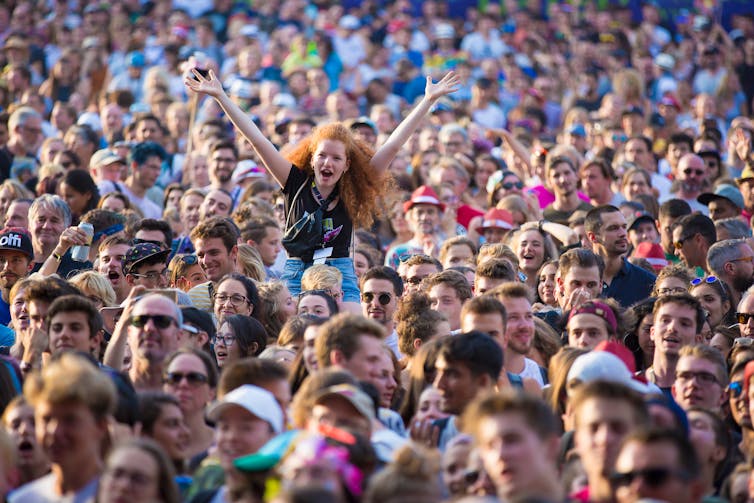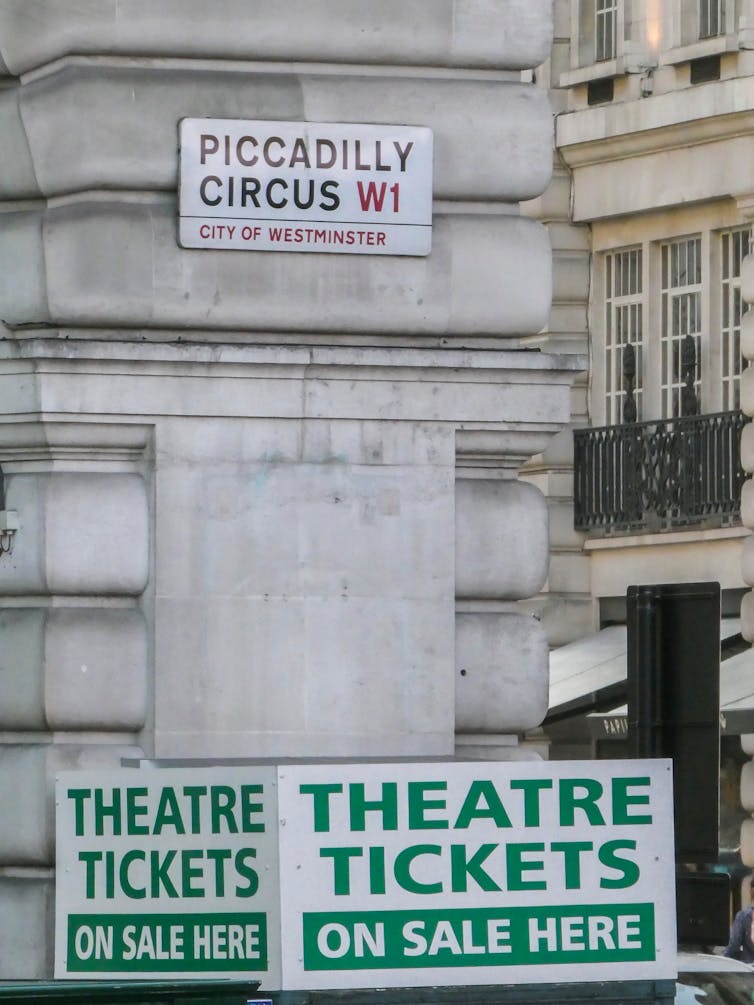Conversation ticket touts
Comment: Is the tide turning against ticket touts?
Published on: 17 August 2018
Writing for The Conversation, Dr Adam Behr discusses changes in the secondary selling market.

As Dylan sang: “You don’t need a weatherman to know which way the wind blows.” Ticketmaster appears not to, anyway, given the news that it will be closing its resale sites Seatwave and GetMeIn in Europe this October. It will be replacing them with a fan exchange facility within the main website that caps ticket prices at face value plus 15% or lower, first in the UK and Ireland and then across Europe. Ticketmaster is a global company, and live music a transnational concern, so developments in one territory can feed into wider trends.
But, while the “secondary market” has attracted increasing attention of late, reselling tickets – often at swingeing mark-ups that can price fans out of the market – is neither new nor straightforward. “Ticket touting,” to use a more derogatory term, has long accompanied live events.
As far back as the 18th century, impresarios complained of subscriptions to concert series being broken up into individual tickets then sold on for profit via booksellers and newspaper advertisements.
The issue has also long been entangled with the broader question of access to culture. In 1881, when the Boston Symphony Orchestra priced some tickets at 25¢, cheap even for the time, to widen audiences for its subscription series, touts bought them up and sold them on at prices that were beyond affordable levels for the very people they were aimed at.
The secondary market, of course, grew wings with the internet. An activity that had hitherto largely been confined to operators selling tickets outside venues became massively scaled-up and normalised. Electronic ticket purchases and the rise of e-commerce sites such as eBay now allowed “bedroom touts” to scoop up and resell tickets from home.
A long regulatory road
Official interest in the UK initially grew from concerns about fraudulent websites and the fees charged by primary agents such as Ticketmaster, which facilitate the process of selling tickets across a tour to customers in numerous locations. In 2005, the Office of Fair Trading published a report on ticket agents in the UK but concluded that secondary sellers provided a useful function and recommended more stringent application of existing laws to combat fake tickets or misleading information about the face value of the ticket.
A 2007 Culture, Media and Sport Committee inquiry into touts likewise baulked at additional legislation, despite vehement condemnations of secondary sites by the Concert Promoters Association. With the trade developing apace – and money draining from the primary market – Ticketmaster took matters into its own hands in 2008 by purchasing secondary site GetMeIn and, subsequently, Seatwave. This blurred the boundaries between primary and secondary sellers. The waters were muddied further when Ticketmaster merged with concert promotion giant Live Nation in 2010.

The attempt by the MP for Washington and Sunderland West, Sharon Hodgson, to put a legislative cap of 10% on resale mark-ups was thwarted when her bill was filibustered in 2011. But the tide started turning when Hodgson and other concerned parliamentarians piggybacked stipulations mandating transparency about the location and identity of the vendor for resold tickets onto the 2015 Consumer Rights Act.
This also prompted the government to commission another review, which noted the difficulties of disentangling the primary and secondary markets, not least that consumers were often ill-equipped to distinguish between them.
Renewed interest, and campaigning by the Fan Fair Alliance, which had some industry support, helped drive a more robust approach. The 2017 Digital Economy Act outlawed the use of bots to circumvent promoters’ restrictions on purchasing large numbers of tickets to resell. Artists and promoters also started pushing back more forcefully. After tickets for Ed Sheeran’s charity gig in aid of teenage cancer victims appeared on resale site Viagogo, Sheeran and promoter Kilimanjaro cancelled tickets for his stadium tour that they had identified as touted and assisted fans who had purchased them to obtain refunds. More than £240,000 was returned to those with invalidated tickets.
Markets and cultural value
So, will the now burgeoning “fan-to-fan” model fix the problem? Complications abound. “Live music” is not a unified market, for a start, and a “one-size-fits-all” solution may be difficult to implement. What works for Glastonbury, for example, may not work for small local venues. Tickets for small, grassroots events, for instance, are less prone to being touted than big names, who are more or less guaranteed to sell out. There is also the technical matter of touts paying for preferential rankings on the Google searches, which will be many fans’ first port of call.
Then there’s the international nature of the internet marketplace. Even if Seatwave and GetMeIn complied with recent legislation, others – such as Viagogo, which is based in Switzerland – have resisted, to the point where its UK office was raided last year by the Competition and Markets Authority.
An underlying question is what the market value of a ticket is in the first place. If people are prepared to pay such large sums to touts for top-tier tickets, are they underpriced in the first place? Again, multiple factors are at play. Artists, unwilling to be thought of as wringing the maximum financial outlay from their fans, will want to develop an audience over the long term.
Because of course, these events are experiences, with cultural as well as financial value. This is what underpins concerns about hugely inflated prices locking those without deep pockets out of access to events.
Ticketmaster’s move may be partly market-driven. Competitors such as AXS and Eventim run “fan-to-fan”, price-capped models. It could also be bending with the regulatory wind. Closer attention to the secondary market in the UK comes alongside a bill in Ireland to put a 10% cap on resale prices. But even if there is an element of PR in play, it still shows that campaigning and the political climate can help shape the market, even shy of an outright legal ban on touting.
Perhaps these industry and political developments suggest that greater attention is being paid to the “cultural value” of live music – the emotional and social benefits at the heart of the experience. Tickets provide access to these, and so are more than just straightforward commodities for financial exchange. If that access is to be protected, then such attention is a step in the right direction.
Adam Behr, Lecturer in Popular and Contemporary Music, Newcastle University
This article was originally published on The Conversation. Read the original article.



